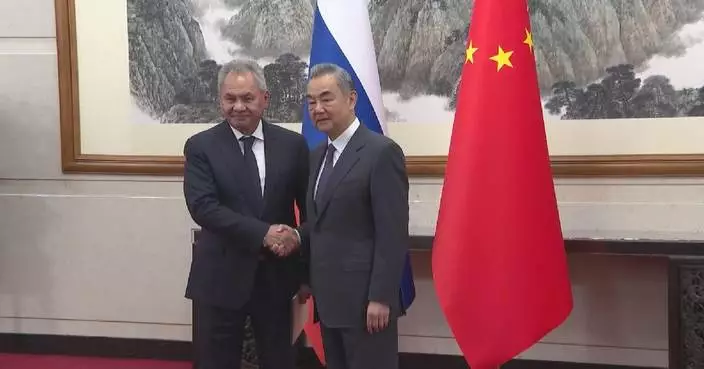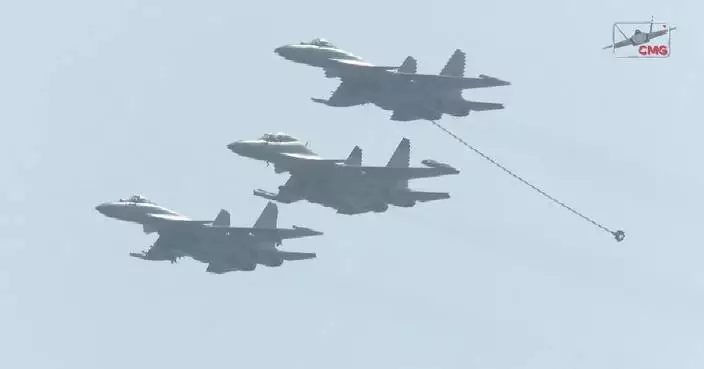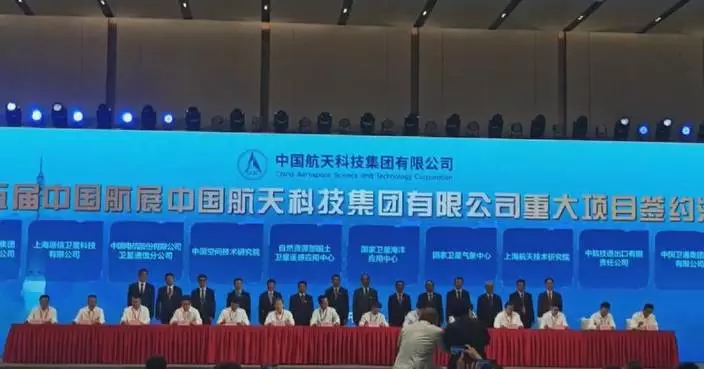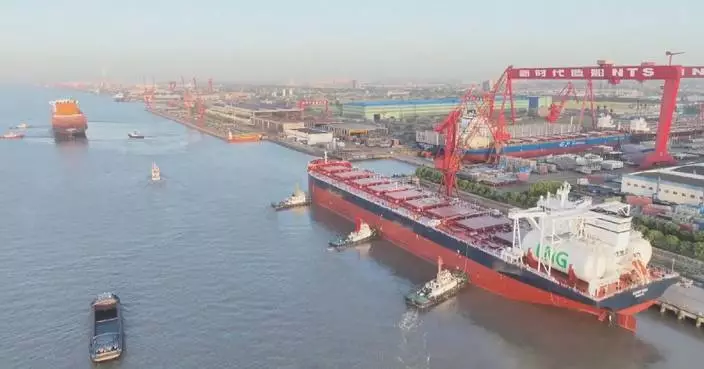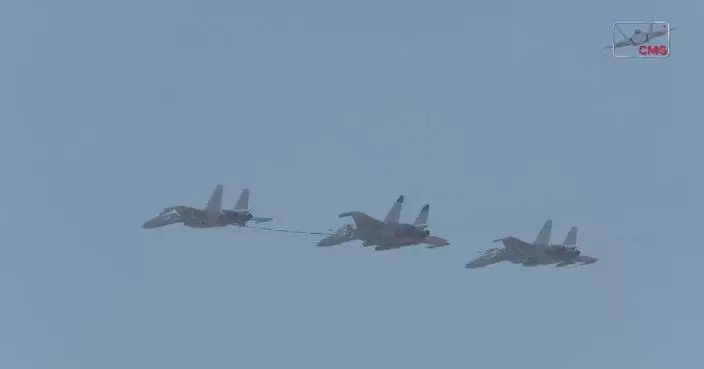The Shanghai Cooperation Organization (SCO) Youth Campus has brought together young leaders from member and observer countries to Qingdao City of east China's Shandong Province, providing them with a firsthand experience of China's modernization.
Over the last eight years, China organized visits for youth leaders from member states and observer countries to promote youth exchange. The SCO Youth Campus is an important youth activity under the SCO framework, aimed at continuously promoting communication and mutual trust among young people. This year marks the fifth iteration of the camp in Qingdao, a city known for its vibrant culture and economic development.
Qingdao Port, which opened in 1892, boasts over 130 years of history and is recognized as the fourth largest port in the world. For many landlocked countries, visiting the port's automated terminals offers a unique perspective on maritime logistics.
"My name is Bobokhonov Faridun from Tajikistan, and it is my first time in China and in Qingdao City. I saw for the first time this automated port. We don't have sea, but it's interesting to me," said campus member Faridun Bobokhonov.
Mekhroj Rashidov from Uzbekistan noted the advancements in port management.
"We see that this port management, they made a lot of work in automation, and we are glad to see that. It also opens some opportunities for those groups and entrepreneurs who want to make import and export," he said.
During the seven-day program, 170 young leaders from 12 countries engaged in constructive initiatives across various sectors.
Xu Shuyi, a participant from north China's Shanxi Province, highlighted the potential for collaboration in agriculture.
"I work in the field of agriculture. Many SCO member states have vast tracks of arable land, very suitable for developing smart agriculture. There are many opportunities for us to work together," she said.
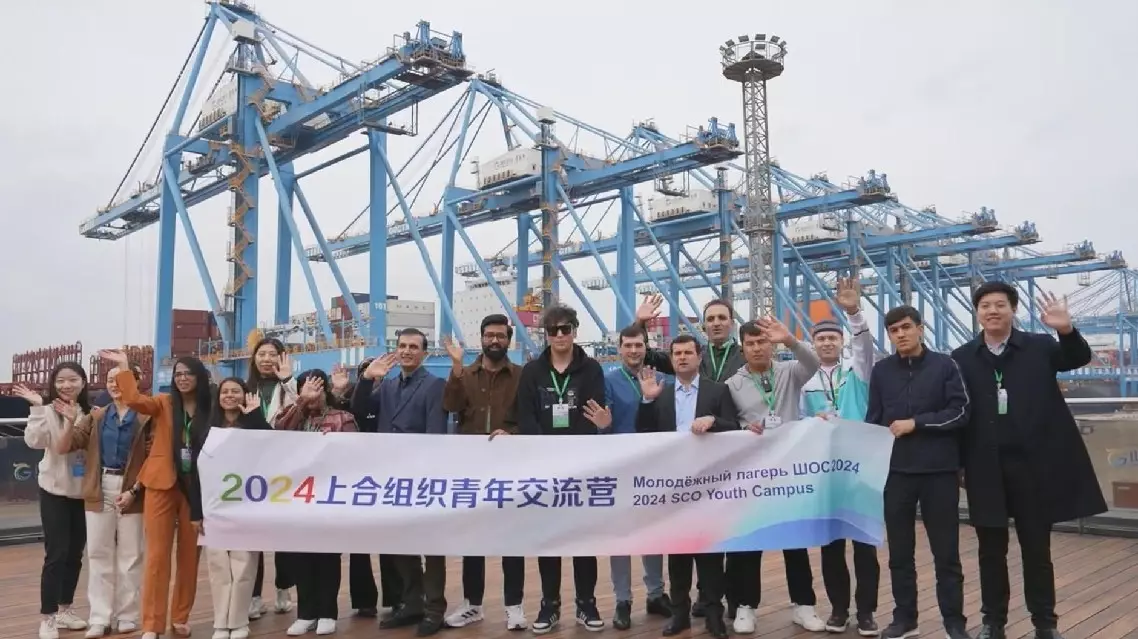
Youth leaders from SCO member states gather in Qingdao for exchange campus
Leaders from across the Arab and Islamic world on Monday denounced Israeli military actions in Gaza and Lebanon and issued a collective demand for an immediate ceasefire at a summit in Riyadh, Saudi Arabia.
Saudi Crown Prince Mohammed bin Salman inaugurated the summit, which the Saudi Press Agency reported was aimed at reinforcing previous regional efforts against what he termed "reprehensible Israeli attacks" on Palestine and Lebanon.
He reaffirmed Saudi Arabia's solidarity with the Palestinian and Lebanese people, calling on the international community to prioritize global peace and security by halting Israel's activities in the region.
The crown prince also urged pressure on Israel to respect the sovereignty of Iran and cease hostile actions on Iranian territories.
At the summit, Syrian President Bashar al-Assad condemned Israel's aggression against Palestine and Lebanon, as well as the acts of genocide committed against the Palestinian people.
He emphasized that if regional countries do not utilize the "tools" at their disposal to take concrete action, they would effectively become "indirect accomplices to genocide."
Meanwhile. Egyptian President Abdel-Fattah al-Sisi noted that the invasion of Palestinian and Lebanese territories is a challenge to the entire international system which is unacceptable, saying that Egypt strongly opposes any plans that undermine the Palestine cause.
Sisi also called for an end to the aggression against Lebanon, emphasizing the urgent need for a ceasefire and the full implementation of United Nations Security Council Resolution 1701.
Addressing a speech, Jordan's King Abdullah II urged the international community to take a firm stance and implement action to end the conflicts in Gaza and Lebanon.
He emphasized the need to prevent the worsening of the humanitarian disaster and to avoid plunging the region into a comprehensive war that would have dire consequences for all.
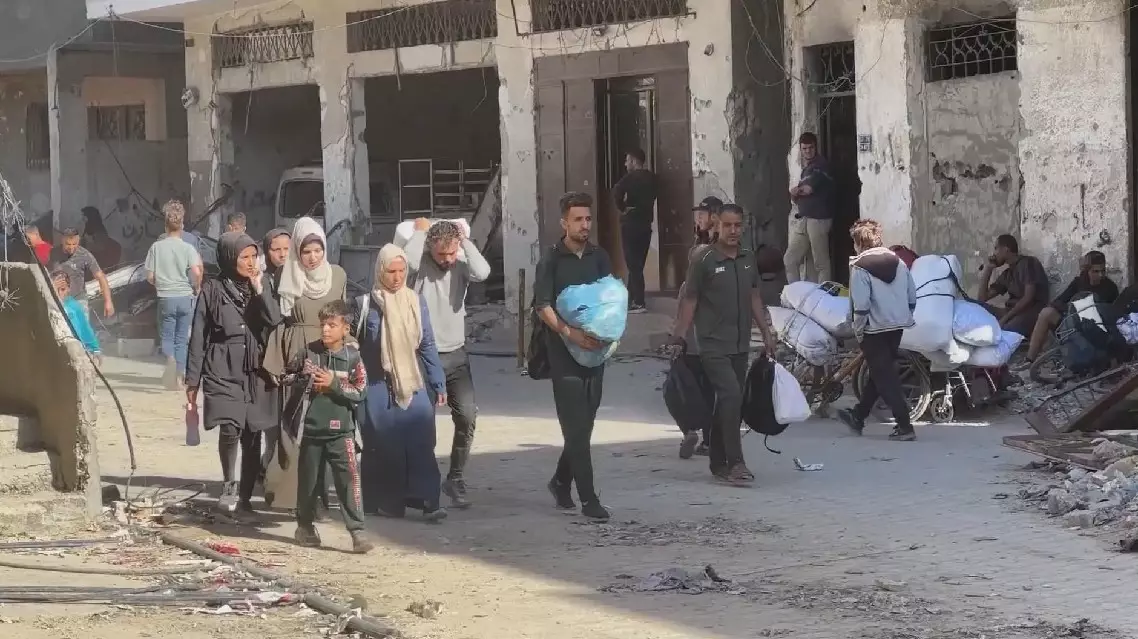
Arab, Islamic leaders condemn Israeli aggression against Palestine, Lebanon




